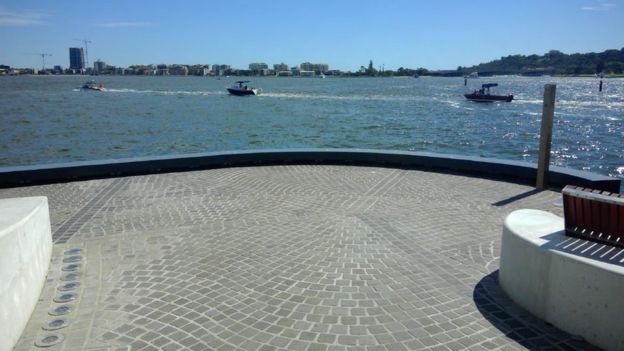Will we ever stop making it worse for the families of MH370?

Today, I saw that the Australian Government is making plans to build a memorial in Perth for MH370. I am sure it is a very well-intended action. However, I am dumb struck by it and wonder if these families will ever catch break.The best that the governments and companies involved could do was not make the loss worse, which all have done repeatedly since the aircraft went missing and they seem to continue to do so. Credit does go to the Australian government for the efforts and massive resources they committed to the initial response. History has shown us time and time again that memorials for any event should at a minimum include significant input from those people directly affected by the event. It is why such guidance has been codified in family assistance laws promulgated by various countries and in guidance issued by the International Civil Aviation Organization. What makes this action even more surprising is the fact that Australian Government, specifically, the Department of Infrastructure, Regional Development and Cities, has for many years now published the “Family Assistance Code,” which was written to establish actions that should be taken following the loss of aircraft.
Specifically:
“The code sets out Australia’s minimum standards with regard to airlines operating to, from and within Australia in rendering assistance through their Family Assistance Plan to victims, and the families of victims…”
Further it states, and this is key,
“Families need to be assured that they will be able to participate in any memorial services held after the accident, and that they will have the opportunity to be involved in the design of any memorial structures erected in memory of the accident victims. Airlines should give consideration to how they handle these issues and put in place a protocol on how this will be handled at the time of an accident”
“A Family Assistance Plan needs to be particularly sensitive to cultural issues associated with the loss of loved ones. Airlines are encouraged to take special steps to understand the cultural issues applying to the main markets in which they operate”
I guess an argument can be made that the code doesn’t apply to the government or, in this case, because no wreckage has been found. But I would say that it is even more important that the government follow their own guidance – set the example, and because wreckage has not been found, it is that much harder for the families and therefore even more important to follow best practice. It is best practice because it works.
In defense of Australia, I have only seen the reaction as noted by some families; but what that tells me is the information has not been well disseminated to all families. And while some Australian families may have been consulted, the clear intent of the family assistance laws and the lessons learned and shared is that all families should be considered.
In closing, some thoughts, and most importantly, the key points to remember are:
1. Your first goal is to not make the crisis worse.
2. Know and follow the various laws, especially if your country has one. These laws have been enacted because of past transgressions and mistakes relating to humanitarian response to crisis. In the case of aviation disasters, there are numerous well documented laws.
3. Survivors and families do not need decisions made for them. They need clear transparent communication, and most importantly, to have an understanding of what that information means to them. Then they need to be heard and, wherever possible, and a memorial is certainly one of those occasions, have as much input as possible. Remember, for the most part, they have so few choices in response to the loss.
4. Understand that the issues of missing people, death and loss mean different things to different cultures, as does the way that loss is memorialized.
5. This is not new: learn from the past and use the experience of others.

Laurie Wood
Very well stated.
Robert A. Jensen
Thanks, Laurie
Col Shivaji Ghosh
Great research based analysis! I would like to add that it would have been prudent for the Australian government to have waited for the conventional seven year period before assuming that there could be no survivors, and therefore a memorial would be justified. While the seven year convention may not be legally binding, it is nonetheless widely accepted.
Robert A. Jensen
Hi Shivaji,
Hope you are well. Thanks, I think the best course is to consult the families. Give them options, there are so many things that could be done such as not including names, or adding only those names that families wish to include. Special phrasing, or symbology such as a light that always shines as beacon to guide the aircraft back – much like some of the pacific islands were people gather to sing when boats going missing, in hopes the missing can hear the singing and follow it back. Different options but unless they have been discussed and supported by families it doesn’t matter because the most important people in the process weren’t included. Robert
George Trayner QPM
Very interesting. Thanks for posting.
Robert A. Jensen
Hi George,
You are welcome! Glad you found it interesting.
Robert